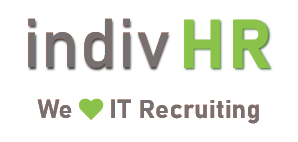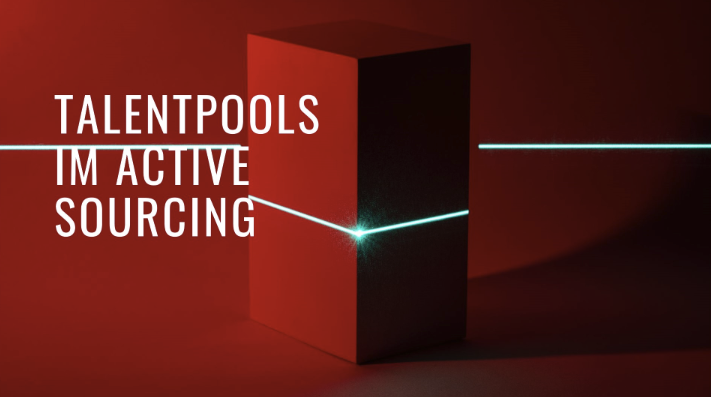Whether you are just starting out in your career or are already an experienced professional, a job interview can always be a challenge. However, the right preparation can make all the difference. This blog post discusses why authenticity and preparation are key and gives tips on how to prepare effectively for a job interview.
Effective preparation for the job interview
Preparing for a job interview is crucial to making a strong first impression and increasing your chances of getting the job. Here are some essential steps to help you prepare:
Company research
- Find out about the company: Understand the company culture, mission, values and current projects. Also take a look at the social media and current news about the company.
- Know the industry: Stay informed about trends and challenges in the industry. This shows your interest and expertise in the field.
- Practising answers to frequently asked questions
- Common interview questions: Prepare answers to standard questions such as "Tell me about yourself" or "Where do you see yourself in five years?".
- Behave authentically: Practise, but maintain your authenticity. Employers value honesty and personality.
Clothing considerations
- Choose appropriate clothing: Find out about the company's dress code. If in doubt, dress more formally.
- Be well-groomed: Make sure you have a well-groomed appearance that expresses professionalism and respect for the interview.
- With these steps, you can go into your interview confident and well prepared. Remember that preparation is not just about learning answers, but also about understanding the company and its culture.
Special challenges for career starters and experienced professionals
Each level of experience brings its own challenges in a job interview. Both career starters and experienced professionals need to use specific strategies to be successful.
Challenges for career starters
- Lack of work experience: Focus on academic achievements, internships and volunteer work. Show how these experiences are relevant to the position.
- Emphasise willingness to learn: Highlight your ability to learn quickly and adapt to new challenges.
- Examples of soft skills: Give examples of how you have used teamwork, problem-solving and other important soft skills in practice.
Challenges for experienced professionals
- Relevance of experience: Make sure you make it clear how your previous experience is relevant to the new role.
- Adaptability: Show that you are willing to adapt to new technologies or working methods, especially if you come from an older generation.
- Avoid overqualification: Sometimes too much experience can be off-putting. Emphasise your willingness to work and learn at the current level rather than just making leadership claims.
By recognising their specific challenges and developing strategies to overcome them, both groups can significantly improve their chances in job interviews.
Dealing with typical and trick questions in job interviews
Job interviews often contain a mixture of standard questions and tricky trick questions. How you deal with these can be crucial. Here are some strategies to overcome these challenges:
Dealing with typical questions
- "Tell us something about yourself.": Use this opportunity to briefly present your strengths and relevant experience. Keep it professional and focussed.
- "Where do you see yourself in five years?": Show your ambitions, but also that your goals are in line with the company's development.
- "What are your strengths/weaknesses?": Choose strengths that are relevant to the position and weaknesses that you are actively improving.
Dealing with trick questions
- Example of a Trick question"If you were an animal, which one would you be?" Such questions aim to test your creativity and personality.
- Strategy for answering: Stay calm and think briefly. Your answer should say something about your personality or way of working. For example, the answer "ant" could symbolise diligence and teamwork.
- Avoid panic: Trick questions are often less about the answer itself and more about how you react. Show that you can remain calm and thoughtful even under unexpected pressure.
By preparing for these types of questions, you can demonstrate confidence and adaptability in the interview. Remember that there is not always a "perfect" answer, but that it depends on how you structure and present your thoughts. Think about your answers in advance and practise them in front of the mirror. This really helps a lot!
Self-presentation and first impression in a job interview
The first impression you make in a job interview is crucial and is largely determined by your self-presentation. Here are some important aspects you should consider:
Body language
- Self-confident demeanour: An upright posture and a firm handshake show self-confidence.
- Eye contact: Maintain appropriate eye contact to demonstrate engagement and interest.
- Facial expressions and gestures: Use facial expressions and gestures to express enthusiasm, but avoid exaggeration.
- Clothing
- Appropriateness: Choose clothes that match the company's dress code. If in doubt, dress more formally.
- Well-groomed appearance: Make sure your clothes are clean and ironed. Your overall appearance should radiate professionalism.
General presentation tips
- Preparation: Know your CV and application documents in detail so that you can answer questions about them with confidence.
- Clarity in communication: Articulate your thoughts clearly and in a structured way. Avoid filler words and be precise in your statements.
- Positivity: Show a positive attitude towards previous employers and experiences to demonstrate professionalism and maturity.
By paying attention to these aspects, you can ensure that your first impression in the interview is positive and professional. Remember that the way you present yourself is often just as important as what you say.
Effective follow-up after the interview
The interview is over, but your work is not. Following up effectively can increase your chances of getting the job and make a professional impression. Here are some tips for following up:
Send a thank you letter
- Send promptly: Send a thank you email within 24 hours of the interview.
- Personalisation: Mention specific topics or conversations from the interview to show that you were attentive and genuinely interested.
- Short and concise: Keep the letter short and to the point. Confirm your interest in the position and thank them for the opportunity.
Further communication
- Follow up after a long period of silence: If you have not heard back after a reasonable time (usually one to two weeks), it is appropriate to politely ask about the status of the application process.
- Professional tone: Even if you are impatient, maintain a polite and professional tone in all communication.
- Show interest without being pushy: Continue to show your interest, but avoid following up too frequently or intrusively.
By following up effectively, you demonstrate your commitment and interest in the position while remaining professional and respectful. This can leave a lasting positive impression and improve your chances.
Summary: Key points for a successful job interview
Effective preparation
- Company research: Get to know the company and the industry in detail.
- Practising answers: Prepare yourself for standard questions and remain authentic.
- Clothing: Choose appropriate and neat clothing according to the company style.
- Challenges for different levels of experience
- Career starters: Emphasise willingness to learn and relevant non-professional experience.
- Experienced professionals: Show how your experience is relevant to the new role and emphasise your adaptability.
Dealing with interview questions
- Typical questions: Answer clearly and in a structured manner.
- Trick questions: Stay calm and creative, use them to show your personality.
- Self-presentation and first impression
- Body language and demeanour: Show self-confidence and professionalism.
- Communication: Be clear, concise and positive in your statements.
Follow-up after the interview
- Thank you letter: Send a personal thank you letter within 24 hours.
- Further communication: Remain interested, but respect the company's process time.
These points are essential for a successful interview. Thorough preparation, adapted strategies depending on your level of experience, skilful handling of different types of questions, a convincing self-presentation and professional follow-up can significantly improve your chances of getting the job. Remember, authenticity and professionalism are your best companions in every step of this process.
For further information:
- Here you will find more valuable tips on the topic of job interviews
- Consider resources such as career blogs or specialised literature for more detailed guidance and examples.
- Use online training or workshops to sharpen your interview skills.
- Consider getting feedback on your interview technique from mentors or professionals in your network.





